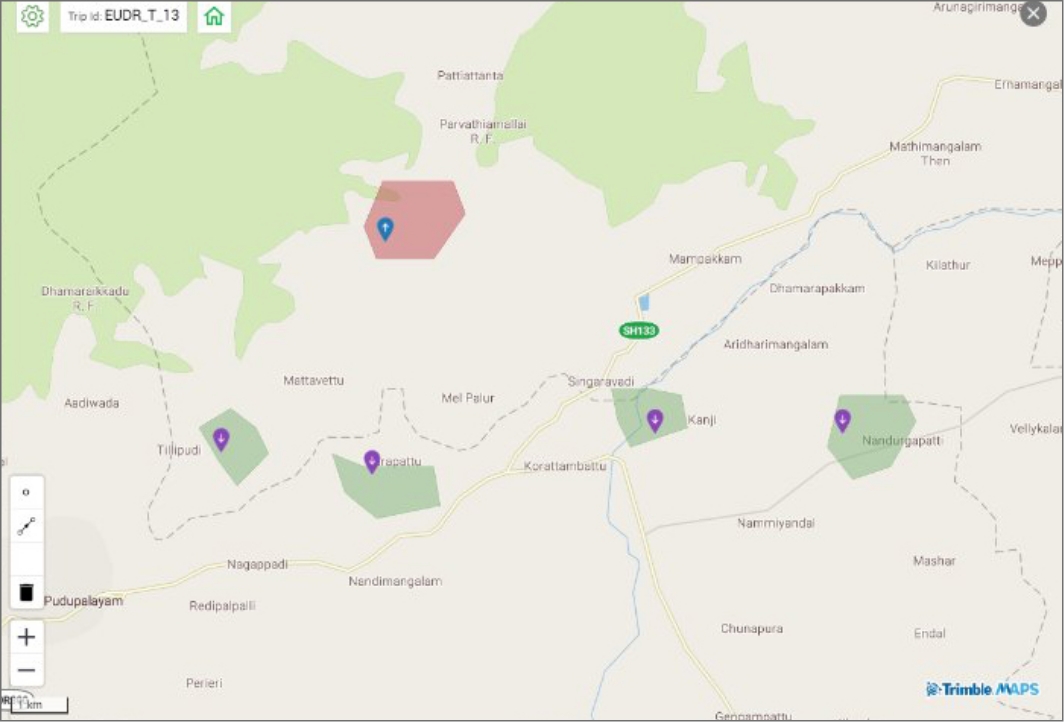share
"The Role of Technology in Transforming Sustainable Supply Chains."
In an era where environmental concerns are at the forefront, the European Union Deforestation Regulation (EUDR) is emerging as a game-changer. Imagine every product you buy—whether it’s your morning coffee, a new pair of tires, or even a chocolate bar—being evaluated for its environmental impact. The EUDR is set to revolutionize how businesses operate, ensuring that products sold in the EU are free from deforestation links. This regulation challenges industries to rethink their supply chains and paves the way for a more sustainable future.
The Challenge: Navigating Compliance and Transformation
The European Union Deforestation Regulation (EUDR) is more than just a regulatory requirement; it is a transformative force reshaping global supply chains. For industries dependent on commodities like cocoa, coffee, rubber, soy, and timber, the EUDR introduces a new level of complexity. Companies must ensure that every link in their supply chain, from raw materials to final products, is transparent and traceable to avoid deforestation.
This regulation poses significant challenges, especially for sectors with intricate, multi-country supply chains. The need for detailed record-keeping, continuous monitoring, and rigorous audits can strain resources and increase operational costs. With the compliance deadline set for December 30, 2024, companies are under pressure to adapt swiftly. Non-compliance could lead to substantial fines, up to 4% of a company's annual global turnover, making timely action critical.
Industries affected by the EUDR face unique challenges
Chocolate Industry: Manufacturers must verify that their cocoa and palm oil sources are deforestation-free. Given that 70% of the world’s cocoa is sourced from West Africa (Source) —a region associated with high deforestation rates—companies must implement stringent verification processes.
Tire Industry: Traceability of natural rubber, often linked to deforestation in Southeast Asia, is required. With the global tire market projected to reach $188 billion by 2028 (Source), the demand for eco-friendly products is growing.
Agricultural Commodities: Commodities like soy, palm oil, and coffee, responsible for two-thirds of forest loss in Latin America and Southeast Asia (Source), must adopt traceability systems to prove their supply chains are deforestation-free.
Timber and Forestry: Ensuring that wood products are sourced from legally harvested forests demands extensive documentation but offers a competitive advantage for responsible sourcing.
Strategic Solutions: Navigating Compliance and Innovation
Adapting to the EUDR requires a multifaceted approach, with technology at its core. Advanced solutions such as blockchain / centralized digital traceability platform, IoT, and geo-mapping are crucial for ensuring transparency and real-time monitoring in the supply chain.
For instance, consider a coffee company sourcing beans from Latin America. This company employs a centralized digital traceability platform to log every step of the supply chain. Farmers use a mobile app to input harvesting details while geo-mapping technology plays a crucial role in monitoring land use. Suppliers provide their data in Geo JSON format, which outlines the specific geographic boundaries of their farms. The system then cross-references this geofence data with comprehensive forest area databases to ensure that farming activities are not encroaching on protected or deforested areas.

If the system identifies any overlap between the supplier's geofenced area and protected forest zones, it highlights these discrepancies in real-time. This allows the company to address potential compliance issues immediately and make necessary adjustments to avoid deforestation-linked risks. Additionally, beans are tagged with QR codes that trace their journey from farm to processing. The company’s supply chain control tower integrates these data points, providing end-to-end visibility and real-time sustainability metrics to ensure EUDR compliance and swiftly address any detected deforestation risks.
Beyond these, Due Diligence Statements (DDS) are critical for streamlining EUDR compliance. Integrating DDS into supply chain management systems enables automated collection and reporting of due diligence information. This integration simplifies the preparation and submission of required statements, ensuring that all necessary documentation is maintained and easily accessible for audits. Real-time synchronization between DDS platforms and traceability solutions facilitates accurate and timely reporting, thereby reducing the risk of non-compliance and supporting proactive adherence to EUDR requirements.
Investing in sustainable practices—such as developing alternative materials like guayule for rubber—reduces reliance on deforestation-linked resources and positions companies as leaders in sustainability. Cross-border and industry-wide collaborations further support compliance and innovation. Initiatives like the Timber Legality Assurance System (TLAS) in Indonesia standardize approaches and improve industry-wide sustainability efforts. Integrating these strategies into corporate planning not only ensures compliance but also drives innovation, strengthens brand reputation, and sets a precedent for sustainability in global supply chains.
The Bigger Picture: Long-Term Implications and Future Outlook
The EUDR is reshaping global supply chains, driving a broader shift towards sustainability. The regulation will spur innovation, as businesses develop modern technologies and materials to reduce environmental impact and enhance supply chain transparency. EUDR's influence on global trade policies may lead to more unified environmental regulations, setting higher standards worldwide. For example, Brazil’s recent commitment to ending deforestation by 2030 aligns with the principles of the EUDR. (Source)
This also enhances corporate social responsibility (CSR) by allowing companies to demonstrate commitment to environmental stewardship, with studies showing that 55% of global consumers are willing to pay more for products from companies with strong CSR commitments. (Source) Preparing for EUDR compliance positions businesses ahead of future environmental regulations, ensuring resilience in a changing landscape.
In conclusion, the European Union Deforestation Regulation (EUDR) is a transformative force that drives industries to innovate and prioritize sustainability. While it presents challenges in transparency and traceability, it also offers significant opportunities for growth and leadership. Embracing technology is crucial for meeting EUDR requirements, positioning companies as leaders in environmental responsibility, and ensuring their resilience in a rapidly evolving market.
